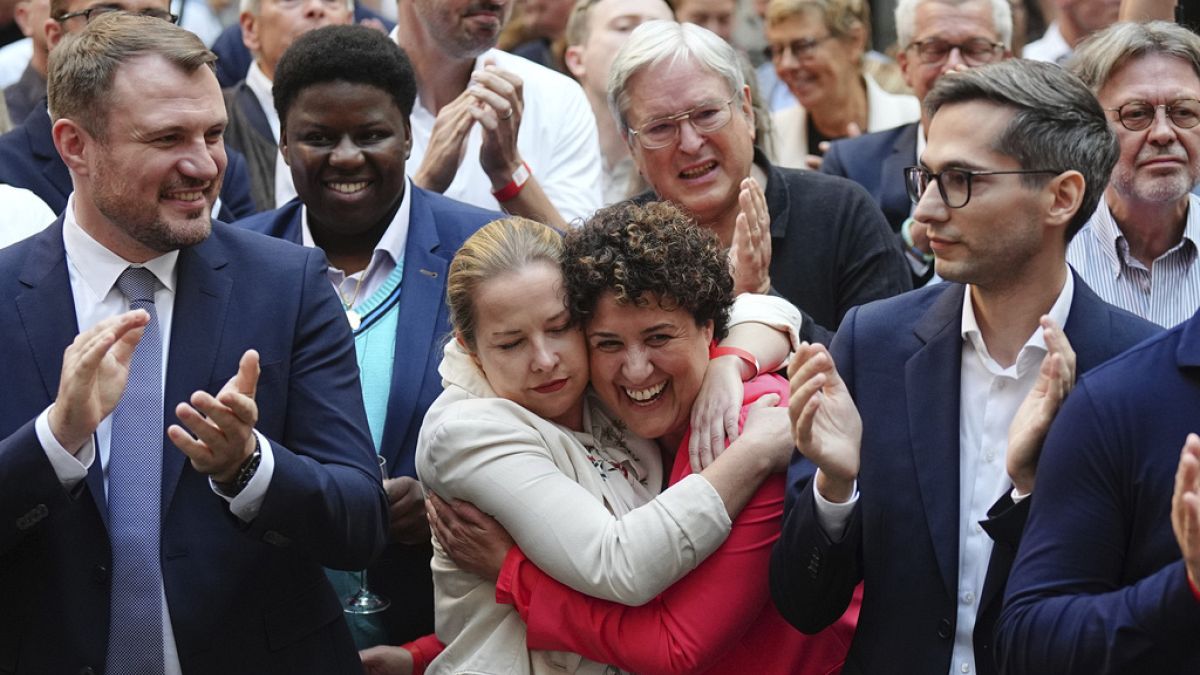Battle of France’s ex-PMs ends in truce as Macron’s party narrowly avoids unity crisis
Élisabeth Borne and Gabriel Attal reach an agreement handing the party over to the latter.
PARIS — Emmanuel Macron’s embattled party Renaissance has lost enough battles this year that it will be glad to avoid an internecine one.
Former French Prime Minister Élisabeth Borne, who was the only candidate officially running to lead the party with current head Stéphane Séjourné tapped to serve as France’s European commissioner, stepped down from the race to make way for her successor to the premiership: Gabriel Attal. While Attal had not previously announced his candidacy for Renaissance secretary-general, he was widely expected to run — setting up possible and likely uncomfortable showdown between France’s last two prime ministers.
However, the candidates reached an agreement granting Borne control of Renaissance’s national council — the party’s internal parliament — while Attal assumes the nominally top role of secretary-general.
Seeking to save face, Borne emphasized that she had “not withdrawn [her] candidacy.” In an interview with radio station RTL on Wednesday, Borne said that she had “reached an agreement with Gabriel Attal” to establish a “balanced distribution of responsibilities.”
In a letter sent to party members, Attal pledged that his goal as secretary-general would be to rebuild Renaissance as a “party of ideas, focused on groundwork and victories.” Renaissance suffered a crushing defeat to the far right during the European election in June and subsequently lost a third of its seats in the French lower house in the snap election that followed.
In conversations with POLITICO, Borne’s supporters within Renaissance, who spoke on the condition of anonymity to discuss internal party issues, stressed that their candidate had negotiated effectively to prevent Attal from having uncontested control over the party. One close ally described Borne’s new role as politically dense, while another said Borne “doesn’t care … in the grand scheme of things,” about the nomenclature of her new position as head of the national council. She is simply excited at the opportunity to connect directly with Renaissance’s local leadership and elected officials, the second ally said.
Borne served as prime minister following President Emmanuel Macron’s reelection in 2022 until January, becoming the first prime minister since the 1990s to govern without an absolute majority — and the second-ever woman to hold the post. Her tenure was marred by her consistent use of a controversial constitutional mechanism to bypass parliament, using the tool to push through two consecutive budgets and a contentious pension reform, a key priority for Macron.
Borne, an austere, plainspoken leader known for surreptitiously smoking her vape pen in the National Assembly, registered the lowest approval ratings of any heads of government under Macron, according to polling firm Odoxa. In a new book, Borne attributes some of the criticism she faced to sexism in politics.
Attal took over shortly after, becoming the youngest prime minister in the history of France’s Fifth Republic. He was forced out after the poor showing by Renaissance in the summer snap election, but emerged from his eight-month tenure largely unscathed in the public eye. Attal is currently the second most popular politician in France, per Odoxa.
The 35-year-old is frequently mentioned in discussions on who should lead the center-right camp in the next presidential election, which Macron is barred from contesting.
“Gabriel Attal has legitimacy and can speak with everyone,” said one of Attal’s senior supporters, who sees the former prime minister as a credible future presidential candidate.
What's Your Reaction?


















































